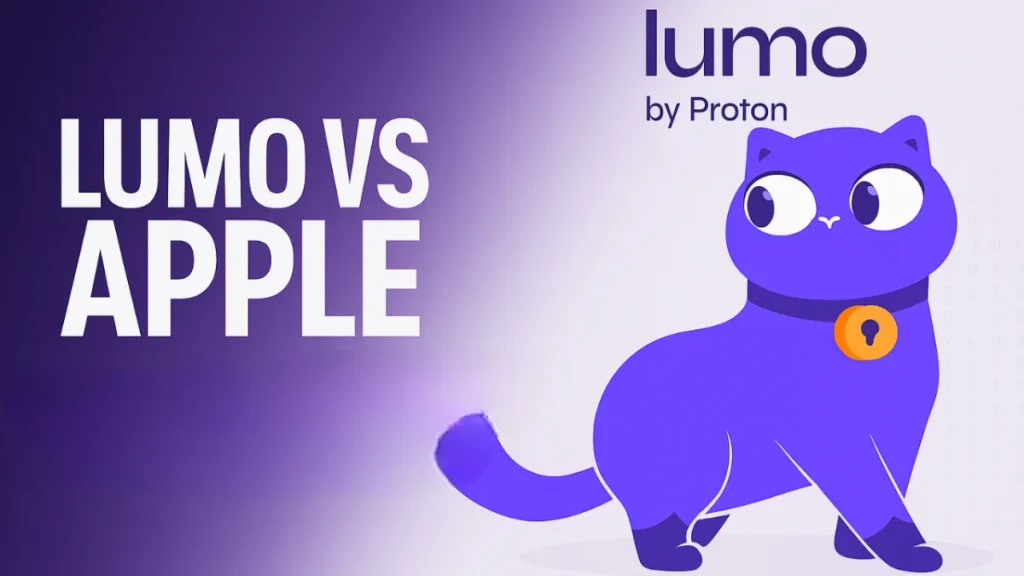The makers of Proton Mail have just entered the AI race — and they’re not holding back. Their new chatbot, Lumo, promises unmatched privacy and throws serious shade at Apple’s AI efforts.
In a move that’s turning heads across the tech world, privacy-first company Proton — best known for its encrypted email service Proton Mail — has launched Lumo, an AI chatbot it claims offers “true privacy,” setting a new standard in the AI assistant space. And it’s not just launching quietly — it’s calling out Apple, Google, and the entire AI industry while it’s at it.
Proton says Lumo is the AI assistant we should have had from the beginning. One that doesn’t harvest our data, log our chats, or secretly ship our conversations off to third parties. Unlike Apple Intelligence, ChatGPT, or Gemini, Lumo was built on a promise: “AI should work for you — not the other way around.”
And it’s not just talk. Proton’s clearly done its homework and is coming in with five bold privacy protections that it claims no major AI assistant matches.
Key Takeaways:
- No Chat Logs: Lumo doesn’t store your conversations on servers — not even temporarily. Saved chats are only decrypted on your device.
- Zero-Access Encryption: Proton’s open-source encryption ensures even they can’t access your data.
- No Data Sharing: Your data stays with you. There’s no third-party tracking or government handover.
- Not Used for Training: Lumo never uses your input to improve its AI — unlike most big-name chatbots.
- Built in Europe, Open by Design: Runs on open-source models in European data centers, far from U.S. or Chinese jurisdictions.
Privacy First, Profit Later
“AI is here to stay,” Proton said in its announcement, “but the current iterations reflect a failure to learn from the past.” That’s a not-so-subtle jab at Big Tech’s long history of trading privacy for progress. With Lumo, Proton is betting that millions of privacy-conscious users — including professionals and businesses — want a better way to use AI.
And let’s be real: in today’s data-driven world, that’s a pretty compelling offer.
Taking a Swipe at Apple
While Apple has been praised for its privacy-forward “Apple Intelligence,” Proton isn’t impressed. The company specifically took aim at Apple’s fallback to ChatGPT for certain AI tasks — even though Apple insists that users are asked for permission first, and OpenAI cannot log or train on those inputs.
Still, Proton draws a clear line in the sand:
“Unlike Apple Intelligence and others, Lumo is not a partnership with OpenAI or other American or Chinese AI companies. Your queries are never sent to third parties.”
That statement — while powerful — omits that Apple’s deal with OpenAI includes strict privacy rules. Critics note Proton’s claim may oversimplify the comparison. Even 9to5Mac called out the shade as slightly misleading, pointing out that Apple’s safeguards are stronger than Proton suggests.
Free to Try, Paid for Power
Lumo is launching as a freemium product — meaning anyone can test it out with a limited number of prompts. For heavier use, a subscription is required, though pricing remains competitive with other AI assistants.
Conclusion
In a digital age where privacy is increasingly compromised in the name of convenience, Proton’s Lumo represents something rare: an AI assistant that puts you — not advertisers or algorithms — in control. Whether you believe Proton’s criticism of Apple hits the mark or not, one thing is clear: the privacy wars in AI are just getting started.
And if users respond to Lumo the way they did to Proton Mail? Big Tech may need to rethink its approach.
